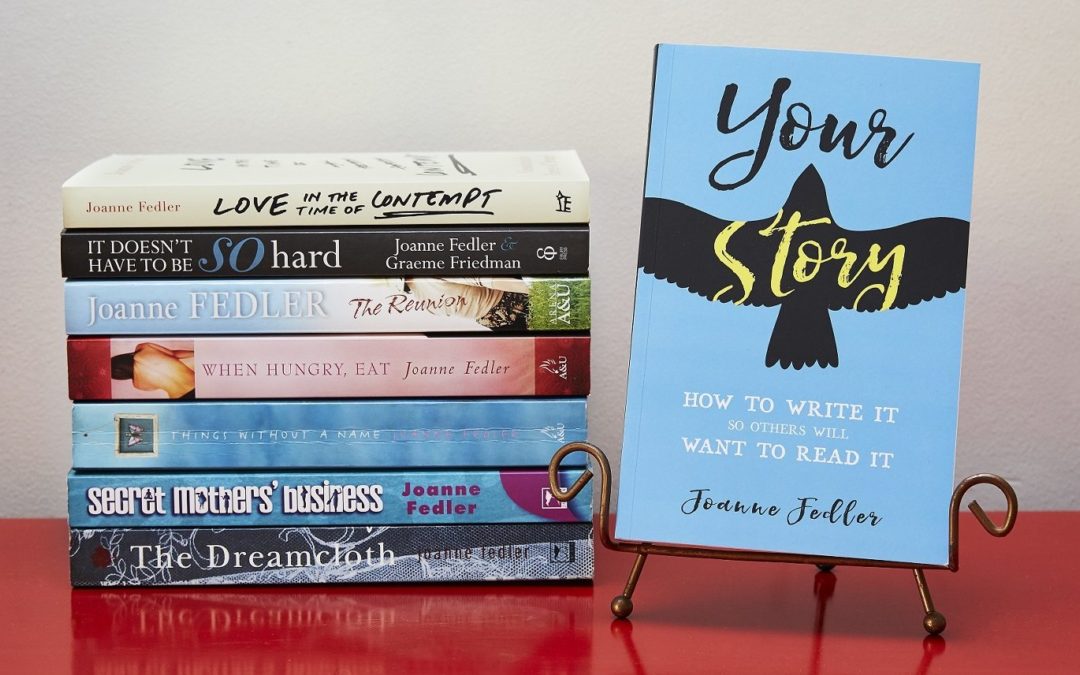I was asked to speak about my experience in the world of publishing.
My being here is actually not about me. It’s about you. My new book is about you – and your story.
So I thought what would be the most helpful input I could give you, as an unpublished author at this point in your writing journey.
Here are my top 10 insights or lessons that I’ve learned over the past 12 years as a published author. Things I wish I’d known. A harvest of hindsight in the hope that it will help you to get more quickly where you want to go.
I want to start by telling you three stories.
1. When I was six years old, I was chosen to be the Emperor in the school play the Emperor’s New Clothes. I had the strongest singing voice in the class and they couldn’t find a boy to take the part. So I was it. Now my teacher wanted me to wear pantyhose and nothing on my little 6 year old upper body. And I was mortified. I didn’t want my little flat chest exposed on stage, so I petitioned her for a different costume and in the end we settled on a leotard that was dyed in some weak tea to approximate my skin colour and I was perfectly happy with that.
2. The second story happened when I was around 14 years old. At 14 there were only two things I wanted to be: pretty and skinny.
I was neither. And my dad who’d been watching me on another celery-cottage cheese and diet coke eating regime said to me, ‘my darling, you will never be a model. Look at that nose. Those thighs. Stop wasting your time dieting. You won’t be a model, but, I promise you this – you’ll be other things.’
Other things. What else was left in the whole world if pretty and skinny were out of reach?
As I was desperately contemplating a future without prettiness and skinniness, he gave me this copy of Dylan Thomas’ Under Milkwood: a play for voices.
And let me tell you, this changed my world.
I remember reading the opening paragraph for the first time.
‘To begin at the beginning. It is spring, moonless night in the small town, starless and bible-black, the cobblestreets silent and the hunched courters’-and-rabbits wood limping invisibly down to the sloeblack, slow, black, crowblack, fishingboat-bobbing sea.’
The words were chocolates in my mouth. I could taste the phrases on my tongue like a champagne of verbal bubbles. And I thought to myself, ‘I want to do that.’ And that was when I began to see there was a life for me beyond pretty and skinny and it involved WORDS.
3. My final story happened when I was 25 years old. I was studying law at Yale. And I had friend who invited me to be a nude model for a photoshoot on women’s bodies.
And I thought, well why not? As a writer you’re always looking for these uncomfortable experiences so you’ve got something to write about.
So I took part in this photoshoot – and I got to tell you, it was a lot of fun. At the end, I asked a photo with me and my girlfriend fully clothed – as a memento. At the end the photographer said something to me I’ve never forgotten: ‘You know, Joanne, you’re more comfortable naked in front of a camera than you are fully clothed.’
I’ll come back to these stories later.
But now I’m going to share my top ten lessons from being a published author.
1. PUBLISHING IS CHANGING BUT BOOKS ARE NOT DYING
What we understand by the word ‘publishing’ has changed over the past 15 years and it continues to change.
I start to feel a bit like a relic because the whole world of publishing has changed so dramatically since my first book advance in 2005.
The internet, technology and social media have revolutionized the traditional publishing model.
Because of how the world has changed, there were – and still are – many people who claim that books are dying and no-one is reading anymore. That the internet has killed the book industry. This is both true and not true.
The truth is that because of the changes in technology, the old way is no longer working.
As someone who love books and believes in them, I do not accept that books are dying. Books will never die.
But I do believe we’ve passed the age of ivory towers, being a drunken recluse, anti-social misanthrope, wife-beating drug addict who produces magnificent literature. The days of Jack Keroac and Dorothy Parker are over. And did they do our profession any favours? I don’t know.
Publishing today means something completely different.
You know, every time you post an update on social media or Twitter or your blog you are technically publishing.
What does publishing mean? It means to share what you think and feel with a wide audience. What happens is that aspiring authors still seem to be stuck on a very old fashioned idea about being published.
We get obsessed with this idea that our writing has got to be between two covers, involve trees and have a big publishing house logo on the spine. And of course it must come with a big advance.
Just as an aside – I’m not a fan of advances. I think people get hung up on those aspects of being a published author and they lose sight of why they want to be published in the first place.
It’s no good closing our eyes and ears and pretending that things haven’t changed, but it’s also weak and unhelpful to believe every catastrophic prophecy about where we’re headed.
The world needs books. And we certainly need fierce storytellers. So we need to embrace new technologies and ways of communicating our message with our audience.
2. YOU BECOME AN AUTHOR SEPARATELY FROM PUBLISHING A BOOK
Because publishing has changed, what it means to be an author has changed.
Getting published and becoming an author are two different manifestations– the one is a phenomenon (actual or virtual) – the other is a function of consciousness. And they don’t necessarily coincide.
Sometimes consciousness precedes publication – many of us know we are going to become authors someday (Rilke said, ‘the future enters us long before it happens’) before we are published.
But the reverse is also true – that sometimes we become published before we have owned the consciousness of being an author.
What does being an author mean?
Now this takes us into paradox territory but I know you’ll stay with me.
First of all, authors are the silent heart of the world – I consider it a sacred calling.
Most of us – let’s face it – won’t make money out of our books AND YET most of us would still write them even if we knew for sure that we wouldn’t.
So what does this tell us?
It tells us that becoming an author in your consciousness is not about commercial success.
It’s about knowing the vision of life that your book is in service to, and how many peoples’ lives we will touch with that book – even if we give it away for free.
However, and here comes the paradox – Though it is a sacred calling, and may not make money from our books, we have to think of ourselves as entrepreneurs as well as artists or healers.
Particularly in the last 4 years, I have dedicated myself to understanding and taking notice of trends and innovation and how it impacts the book industry and the reinventions that are necessary for us to keep up with change.
I’ve done 4 business courses in the 4 years including a course on how to run campaigns, and I constantly read books about business, creativity, innovation and entrepreneurship.
We need to be optimistic and hopeful but also realistic and practical.
3. FAIRY TALES FUCKED US UP or PRINCESSES DON’T GET PUBLISHED
Not a fan of the fairy tale, especially for little girls – they made us believe that the highest we should strive for, is to be a princess.
And this is the bloody problem. If your goal is to be Snow White dead in a coffin, or Sleeping Beauty knocked out for hundreds of years, or Cinderella who ran away, waiting for your prince (i.e. a publisher) to ride in on a white horse and save you – bring you back to life, wake you from your slumber, crown you the Queen…. you are going to be waiting for a long long time.
If you want to model your life on a fairy tale, forget about being the princess. Be the prince. No-one is coming to save us, turn us into successful authors but ourselves.
A lot of aspiring authors believe that all they have to do is get a publishing deal, then their job is over, they can go back to sleep and let the publishers do all the work. And everyone will live happily ever after. Now that is a fairy tale.
There are two jobs you have as an author:
- write the best damn book you can and
- get your book into the hands of as many readers as possible.
What happens is that we put years into writing, and then we hand over our book to a publisher and suddenly we’re filled with learned helplessness. We don’t know how to market our book, or talk about it, or get people to buy it.
Remember, you are your book’s greatest champion. Be the princess by all means (who can resist the fashion?), but be the prince too.
4. WHAT IS THE VALUE OF A LETTER FROM KOREA?
The biggest shock for me is that my best books didn’t sell as well as my least best books. In fact, the book I consider my most amateurish is the one that outsold Harry Potter for a while in Germany – and it’s the one from which I still receive royalties.
I had a fluke with that first book – and that can make you complacent and lazy, or at least entitled. I thought well one book has been an international bestseller, so all the others that follow will be too.
But they weren’t. There is no algorithm that guarantees that any book will succeed or sell. So we cannot judge ourselves or our book by how it sells.
What this has taught me is that I can’t allow others to decide what value I place on my book. Not a publisher. Not reviewers. Not even buyers. You must love your book. It must be your beloved, for whom you would do anything.
One of my books for which I did not even earn back my miserable advance, is responsible for at least two couples finding love. Another book which sold reasonably was responsible for this email that arrived in my inbox last year, entitled Hello from Korea.
Dear Joanne,
Hello from Korea.
I have read your book (love in time of contempt)
And I’d like to say thank you so much.
I’m a mother of 32 months’ kids.
My daughter is so far until teenager.
But I was helped you.
Sometimes I left her in another room for punishment
Recently I think It’s not good.
But I don’t know how to do
In your book, I found answer.
After reading your book, I stand beside her.
It’s very good.
Thanks,
Fiona
What does success mean? Am I going to let someone else define what it means for me?
Royalties are wonderful – we all want them. But a book has more than commercial value in this world if it changes someone’s life. ‘In your book, I found answer…’




